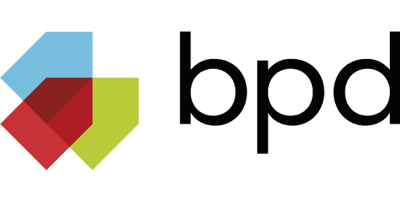Designing the Social
Members of Mama Cash, the pioneering independent feminist fund, posing in front of the Homomonument [Gay Monument] in Amsterdam, from left to right: Dorelies Kraakman, Tjheng Hwa Tjoa, Patti Slegers, Lida van den Broek, Marjan Sax; missing in the picture is Tania Leon, 1987, photo: Mieke Geuzebroek. Source: Collection IAV-Atria
Identifying, or being identified, as a woman, or a queer and/or non-binary person, often means other, more dominant groups in society come up with names 'for you', to mark your difference from the norm, or deliberately insult you. To (re)claim agency over one's own personhood and identity, it has become a strategy to take the symbols, terms, and attitudes that have been ascribed to oneself, and make them one's own.
The pink triangle, just like the word 'queer', is an example of such a (re)claiming. Introduced by the Nazis to stigmatise gay men and trans women, the pink triangle has since become a positive self-identifier and design tool in Western lesbian, gay, bi, queer, intersex and trans communities (often shortened as LGBTQI+). Since the 1970s, the triangle has occurred in many shapes and applications to highlight the queer context of an event, and continues to be used. However, some also refuse to reproduce the signs or words of their oppressors as self-identifiers. Employing the practice of amplification - metaphorically speaking, echoing the voices of those who are less heard in society - it is always central to listen to the voice(s) of a marginalised person or group, to acknowledge their lived experiences, and address them with their chosen names and descriptions.
Archives
The archival material used for this section includes:
Ground plan Homomonument (FDS_IMG063)
Stigt, J. van (Joop) / Archief, STIG19.50 Tekeningen derden homomonument
This project was made possible thanks to:
 Zabawas logo
Zabawas logo BPD logo
BPD logo